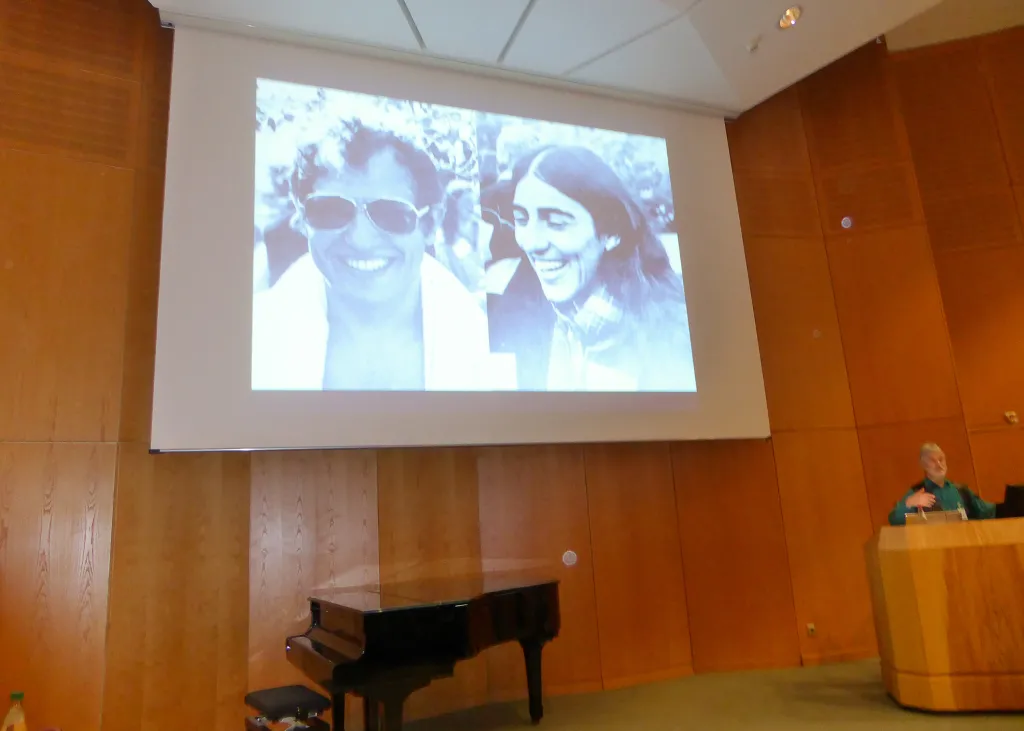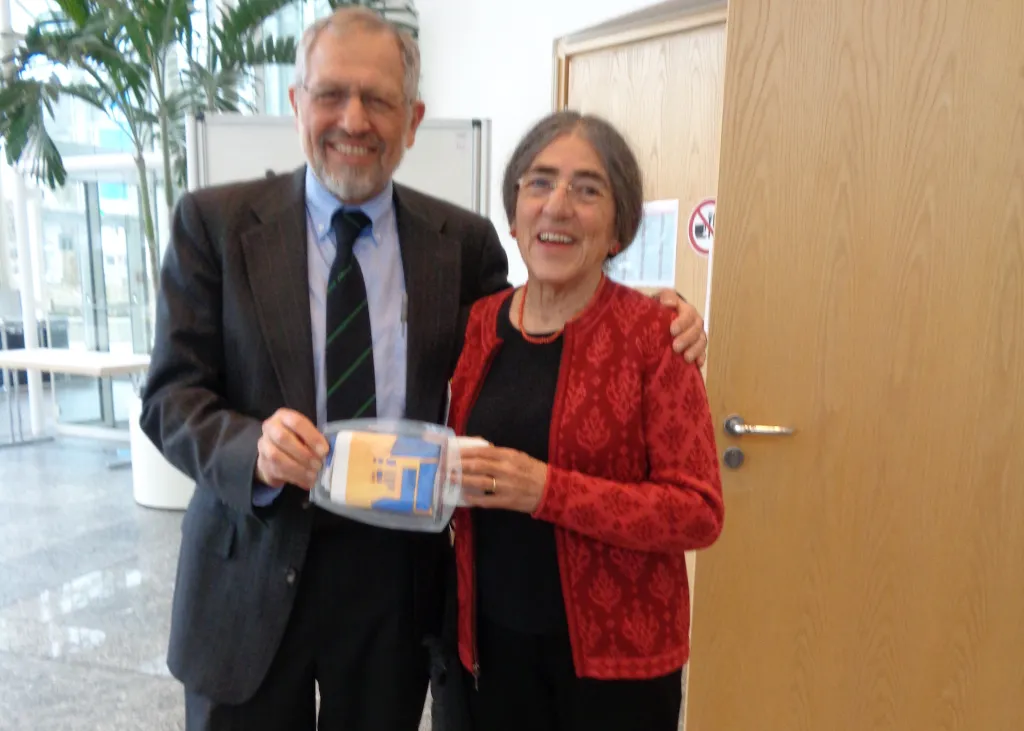UNE’s Don Olins honored with symposium for revolutionary DNA research

Don Olins, Ph.D., research professor in the College of Pharmacy, has been recognized with a symposium in celebration of his 80th birthday and his groundbreaking DNA research. The conference was held at the German Cancer Research Center (DKFZ), where Don and his wife Ada Olins, a research professor in the College of Pharmacy, have held laboratory and guest scientist positions since the 1970s.
Titled “Chromatin - From Beads on a String to Four-Dimensional Nuclear Architecture,” the program focused on the Olinses’ contributions to the field of chromatin structure. Colleagues from Israel, the United Kingdom, the Czech Republic and the United States were in attendance, presenting on topics including genome architecture mapping and mitotic chromosome formation and structure.
Don and Ada Olins concluded the symposium with a talk on “Epichromatin: Nucleosomes at the Surface,” in which they discussed their recent research into the DNA composition of epichromatin, the structure of chromatin on the nuclear surface.
The Olinses first worked at the DKFZ in 1979, when Don received an award from the Alexander von Humboldt Foundation. This funded his work in the laboratory of Werner W. Franke, a world renowned cell biologist. In 1997, Ada received a Humboldt stipend and worked in the laboratory of Peter Lichter, known for many important contributions to nuclear architecture and cancer research. The Olinses have since returned to Heidelberg almost every year as guest scientists, spending three months working in the labs of Peter Lichter, Harald Herrmann-Lerdon and Jörg Langowski.
The Olinses’ most recognized contribution to the field was their 1973 discovery of the nucleosome, the first level of DNA packaging in the nucleus. The nucleosome is fundamental to higher levels of chromatin packaging, and is the site of chemical modifications that possess genetic regulatory functions. Since this finding, their research has concerned nuclear function and architecture as well as chromatin structure.
To learn more about the University of New England’s College of Pharmacy, visit www.une.edu/pharmacy
To apply, visit www.une.edu/admissions

